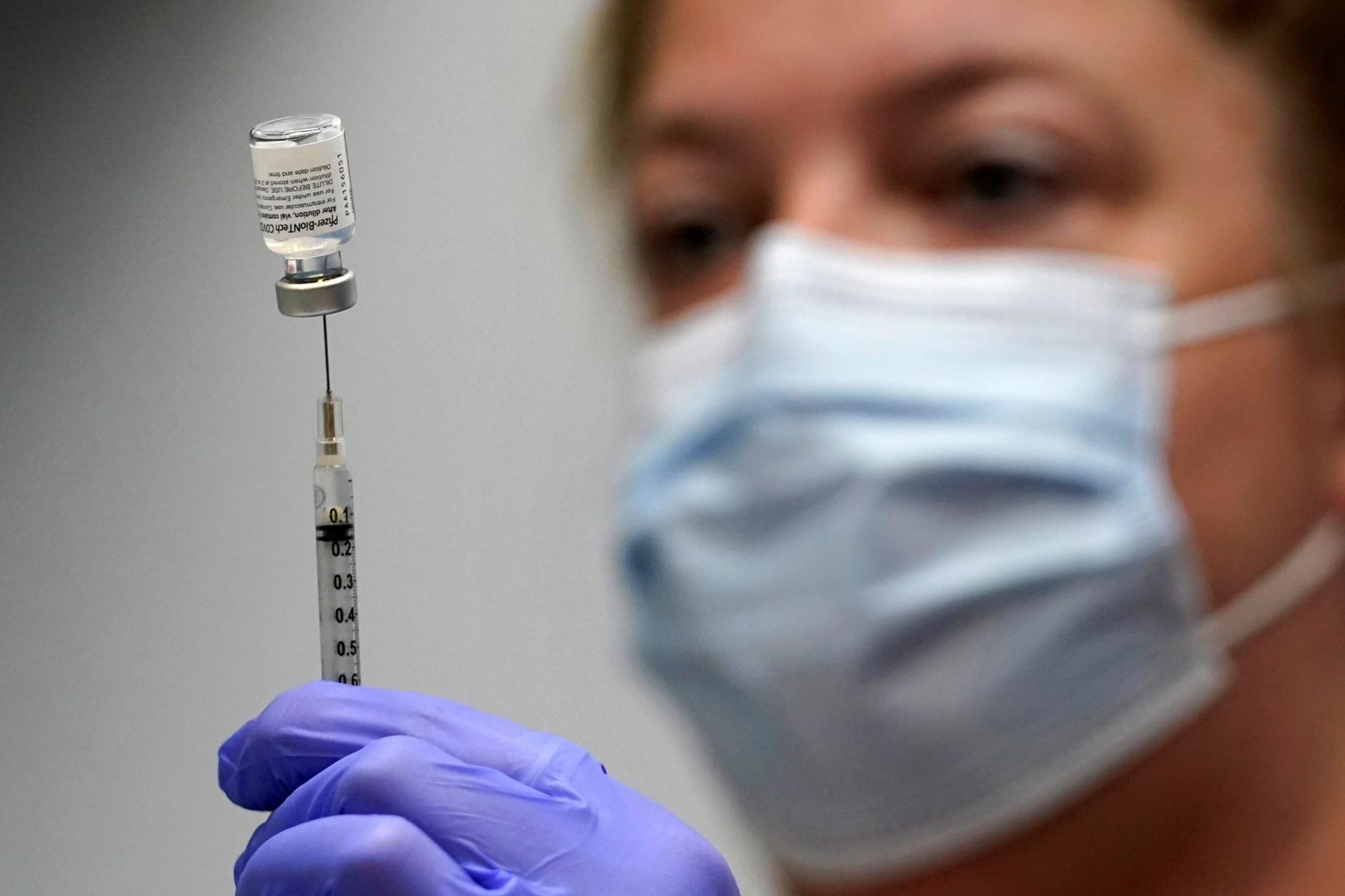FDA Panel Backs COVID-19 Boosters Only for Elderly, Those at High-Risk

WASHINGTON – A Food and Drug Administration advisory panel voted unanimously Friday to recommend emergency use authorization of a booster dose of Pfizer-BioNTech COVID-19 vaccine six months after full vaccination in people 65 and older and those at high risk of severe Covid-19.
But the same panel — the FDA’s Vaccines and Related Biological Products Advisory Committee — rejected booster doses of the vaccine for everyone over the age of 16.
The decision capped a weeks-long debate among federal and independent scientists about whether the evidence supported a booster shot program that the Biden administration had planned to roll out next week.
Though the panel’s vote is not binding, the FDA usually follows the recommendations of its advisory committee.
Throughout Friday’s hearing the main points of contention appeared to be whether there was clear evidence the booster shots would provide a benefit to younger people, and whether there was sufficient data to suggest that a broad launch of a booster shot program would be safe.
Much of the concern centered on relatively rare instances of heart inflammation reported in recipients of the Pfizer-BioNTech and Moderna shots, which both rely on mRNA technology.
Representatives of Pfizer told the panel that maintaining high vaccine effectiveness is integral to containing the pandemic, and it argued that administering boosters is the only way to get and stay ahead of the coronavirus.
The company reps also said the effectiveness of its vaccine wanes over time.
Pointing to data from Israel, the Pfizer team said booster performance in people over 60 has already been largely proven, and noted that the country has expanded its vaccine campaign to include boosters for people over 30.
In a separate presentation, Israeli scientists suggested that their country would have exceeded hospital capacity over the summer had it not begun giving boosters.
But Sara Oliver, a doctor with Centers for Disease Control and Prevention’s National Center for Immunization and Respiratory Diseases, said while the vaccines’ efficacy against COVID infections and mild illness has dropped over time, it nevertheless remains high against severe disease and hospitalization.
While all this was going on, the CDC published a report that showed all three of the COVID-19 vaccines available in the United States provide protection against hospitalization.
In addition to Pfizer-BioNTech, the other vaccine makers are Moderna and Johnson & Johnson.
The agency’s study, published in its Morbidity and Mortality Weekly Report, included information on more than 3,600 adults hospitalized at 21 U.S. facilities from March to August.
In related news, the White House announced Friday afternoon that President Biden will convene a virtual COVID Summit on the margins of the UN General Assembly.
“This meeting is about expanding and enhancing our shared efforts to defeat COVID-19, building out from previous gatherings of world leaders and ministers in forums like the G7, G20, and Act Accelerator to rally civil society, NGOs, philanthropists, and industry along with world leaders and align on a common vision for defeating COVID-19 together,” said White House spokeswoman Jen Psaki.
The White House said Biden will be asking participants to commit to of a higher level of ambition across four themes:
- Vaccinate the World by enhancing equitable access to vaccines and getting shots in arms.
- Save Lives Now by solving the oxygen crisis, and making tests, therapeutics and PPE more available.
- Build Back Better by establishing a sustainable health security financing mechanism, and global leadership for emerging threats.
- Calling the World to Account by aligning around targets, tracking progress, and supporting one another in fulfilling our commitments.
“We will have more to share on the COVID Summit in the coming days,” Psaki said.























